- About

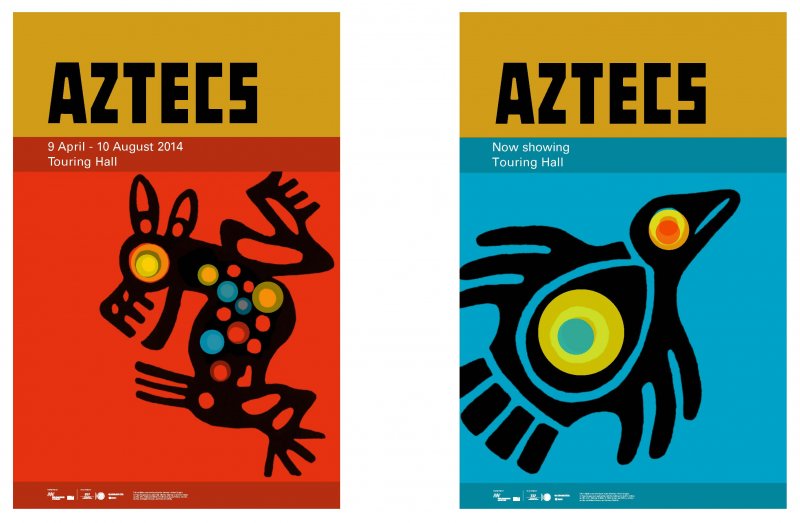 Aztecs exhibition front desk posters, Melbourne Museum
Aztecs exhibition front desk posters, Melbourne Museum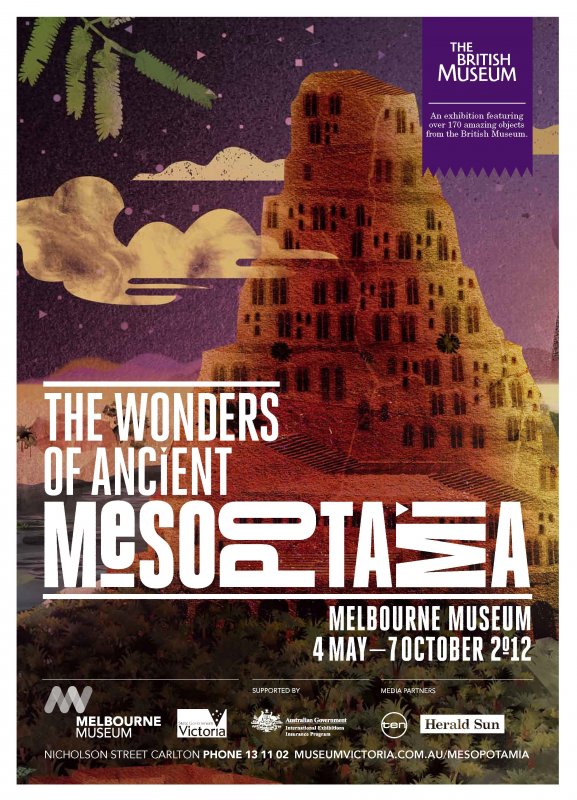 Mesopotamia exhibition poster, Melbourne Museum
Mesopotamia exhibition poster, Melbourne Museum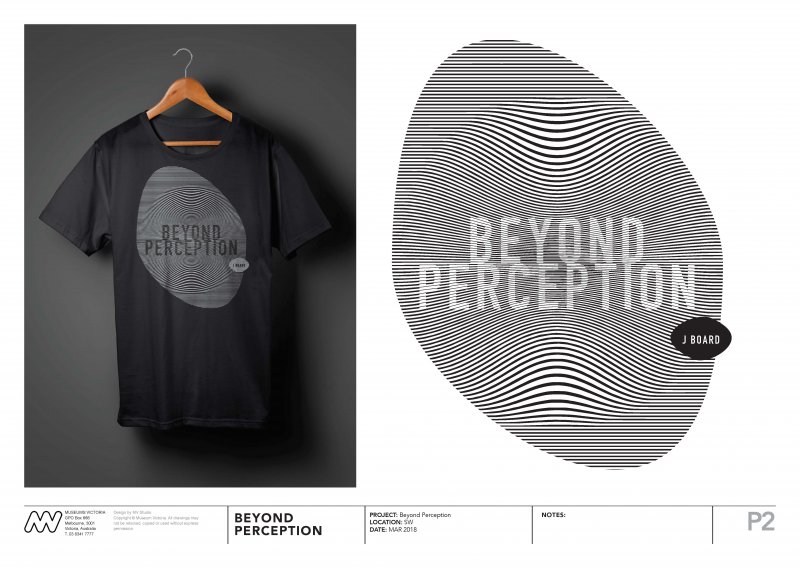 Beyond Perception exhibition T shirt design, Scienceworks
Beyond Perception exhibition T shirt design, Scienceworks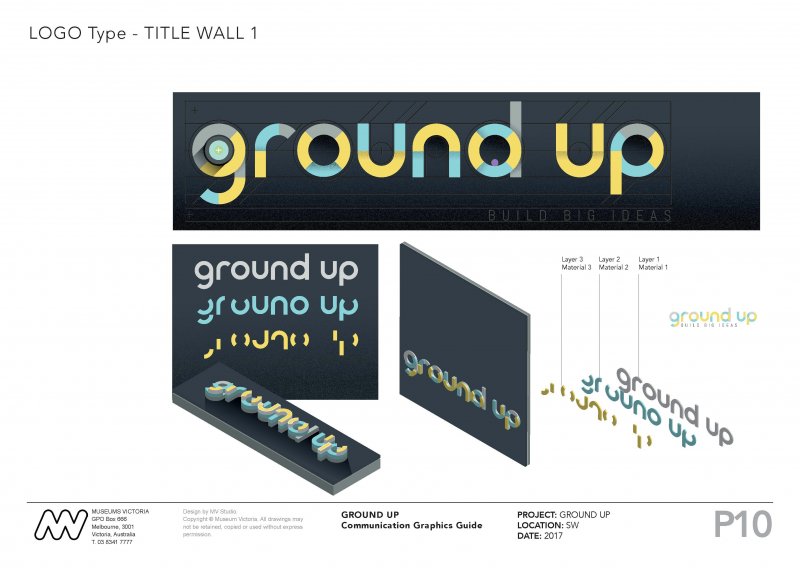 Ground up exhibition title treatment, Scienceworks
Ground up exhibition title treatment, Scienceworks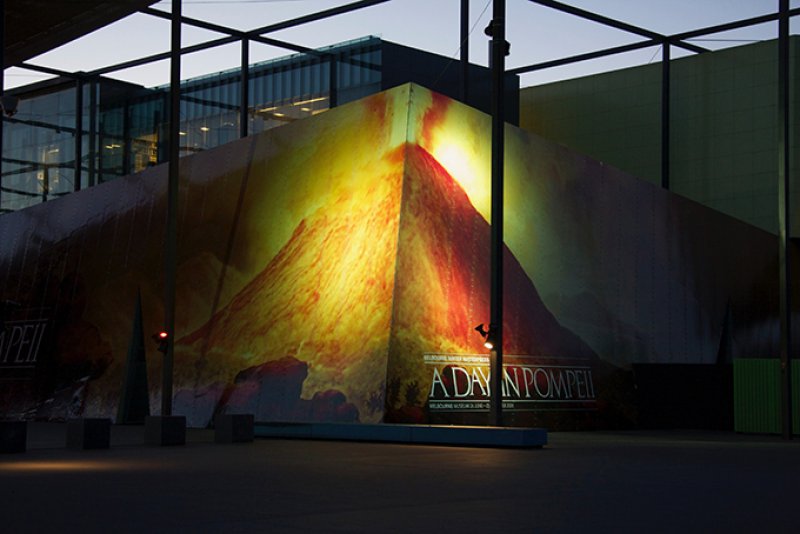 Pompeii exhibition environmental graphic, Melbourne Museum
Pompeii exhibition environmental graphic, Melbourne MuseumCulture Comms
—Trevor StreaderSTRATEGY
TUES 1:30-4:30PM, FRI 9.30-12.30PM
*See myTimetable for Room & TimeStudio Inquiry
The Culture Coms studio explores the field of designing communications for cultural events and organisations. It can be hugely rewarding to be able to observe first hand how your design provides life enriching experiences to audiences. The studio will investigate the strategies that inspire, guide and inform the decision making processes of cultural institutions. You will investigate the role of organisational vision, mission and brand positioning and be introduced to audience segmentation. Finally you will develop a design strategy that will be used to drive the creative development of innovative and inspiring visual communications.EngagementStudents will research the vision, mission, values, target audiences and brand positioning of an existing cultural organisation. Informed by the research knowledge, they will propose an exhibition or event concept and craft an engaging visual language that powerfully positions the concept to the target audience. The resolved concept will finally be presented in a proposal format ready to present to key stakeholders, typically senior and executive management.Communication of knowledgeKnowledge will be communicated via the presentation of group research and individually presented communication design strategies and design concepts. Finally, students will present an event/exhibition proposal comprising a positioning strategy, a visual identity, visitor experience visualisation and an announcement campaign.ActivitiesPersonal connections with cultural organisations and activities will be documented and shared. Students will work in groups to research a cultural institution and make group presentations outlining the purpose of the organisation and the strategies employed to deliver events and exhibitions to specific audiences. They will participate in peer to peer work in progress presentations and provide critical feedback and support to one another throughout the design development process.AssessmentsThere will be three assessment tasks.
Project 1 - 25%
Project 2 - 45%
Project 3 - 30%Pre-Readinghttp://www.eyemagazine.com/feature/article/raise-the-bar
http://www.eyemagazine.com/feature/article/the-steamroller-of-branding-text-in-fullCommunities of PracticeDesigning Experiences, Designing Identity, Designing through Image